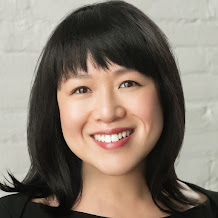By Nina Totenberg
Simon & Schuster
2022
304 pages Memoir
Every American woman knows who Ruth Bader Ginsburg was. Her
legacy continues to evolve as a beacon of light for women’s rights in this
confused country. And if you listen to National Public Radio, you know who Nina
Totenberg is. She has been NPR’s legal affairs correspondent for many years,
and she covered the Supreme Court during the years that Ruth Bader Ginsburg was
a justice and only the second female justice on the Court.
In this memoir, Totenberg tells her own life story
interspersed with stories of her friendship with Ginsburg. It becomes an ode to
the power of women and of the hard-fought battle to overcome the stigma of
women’s second-class status in society. Her friendship with Ginsburg began when
she interviewed her in 1971 and continued through interviews, dinner parties,
phone calls, and medical emergencies.
More importantly, it is the story of friendship and of women
helping women succeed. Not only Totenberg’s friendship with Ginsburg, but also
her friendship/working relationship with Linda Wertheimer and Cokie Roberts at
NPR. Through story after story, we learn of these women’s growth as well as the
progress of women in the media and in the public arena.
We all wondered why Ginsburg, who knew she was suffering
from fatal cancer, did not retire from the Supreme Court. Totenberg offers her
own justification. She says, “It was a gamble and she lost.” Ginsburg had
wanted the first woman President to choose
her successor. Of course, this didn’t happen, and then Ginsburg wanted to
survive through the Trump administration. And on a political note, it has been
all downhill since then.
One story I found particularly fascinating is extraneous to
the story of Ginsburg. Totenberg tells of her father, Roman Totenberg, who was
a world-famous violinist. His Stradivarius violin had been stolen by a former
student in 1980. In 2015, the FBI informed the Totenberg family that the violin
had been discovered in a closet when the man died. It is a remarkable story and
should, of course, be present in Totenberg’s memoir, even though it has little
to do with Ginsburg.
Many of my major opinions regarding Dinners with Ruth
has to do with the power of friendship. I very much connected with that
particular story line because of how deeply my friends have rallied to help me
following the death of my husband. My book club is discussing Dinners
with Ruth tonight and I will want them to know how dear they all are to
me. Reading the book has also caused me to do a lot of thinking about my role
in sustaining friendships.
Here is the story of Nina Totenberg’s father’s Stradivarius.










